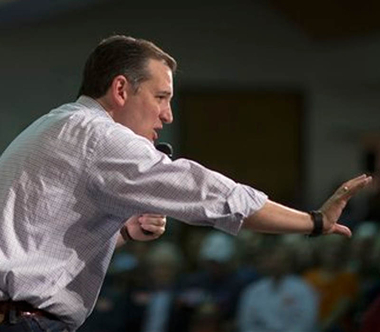Analysis: Prisoner swap puts GOP candidates in a tough spot

Washington (AP) — Iran's release of five Americans gives President Barack Obama the opportunity to deliver a harsh reminder to the Republicans wanting to succeed him: You can promise to pull back the hand I've extended to Iran and Cuba — nations the U.S. once cut off — but it won't be easy and it may be lonely.
As Republican candidates vow to rewind Obama's rapprochements on their first day in office, many U.S. allies and business interests have pressed forward with outreach to Iran. The next president may find Iran has established itself as world player, a useful diplomatic power broker and a potential market for U.S. businesses.
Vowing to isolate Tehran may only isolate the U.S. from many of its allies.
Similarly, in Cuba, where Obama reversed decades of Cold War policy, American businesses are eyeing a new market while U.S. tourism is on the rise. Reversing the tide may prove as difficult as un-ringing a bell.
"It's easy to reverse the policies, it's hard not to be isolated in the process," said Jon Alterman, Middle East analyst at the Center for Strategic and International Studies. "Can you force the rest of the world to see things the way you do? That's a big question."
The diplomacy with Iran after decades of a divide fulfills Obama's first inaugural promise "to extend a hand if you are willing to unclench your fist." But Republicans argue Obama reached out well before Tehran eased its grip. Its missile program has violated existing U.N. prohibitions, it supports terrorist groups and it has remained a key ally of Syrian President Bashar Assad, they say.
But Saturday was a clear reminder of the forces working against the Republican contenders on Iran. The release of Americans — four of them negotiated as a prisoner swap alongside nuclear talks and one worked out separately — removed a key argument that the U.S. should not lift sanctions while Americans are being held.
Meanwhile, the U.S. and other Western nations declared Iran had kept up its end of the landmark nuclear agreement completed last summer, triggering the removal of the billions of dollars in economic sanctions and beginning to open up the gates for international businesses.
"Today marks the first day of a safer world," Secretary of State John Kerry said.
Republicans did not see the moment of as an achievement. While they gently praised the return of the Americans, they blasted the release of Iranian prisoners by the U.S. as part of the swap.
"While we celebrate their return," Texas Sen. Ted Cruz said of the released Americans, "this deal serves as piece of propaganda for both Iran and the Obama administration."
Cruz reprised his promise to "rip to shreds this catastrophic Iran nuclear deal."
Former Florida Gov. Jeb Bush said he saw "weakness" in the Obama administration's dealings with Iran.
"Let's take a step back here," Bush told a town hall meeting in New Hampshire. "The bigger issue is that we've legitimized a regime who shows no interest in actually moving toward the so-called community of nations."
In truth, the U.S. has not been alone in shifting its pose toward Iran, which is part of what would make undoing it difficult. The nuclear deal was negotiated alongside France, Britain, Germany, Russia and China, a coalition that managed to hang together through lengthy discussions and difficult domestic politics. Since then, Iran has joined in international talks seeking an end to the Syrian civil war. White House officials say they see those talks as a test of whether other conversations are possible.
Some Republicans have acknowledged it may be difficult to cut off these ties. Bush has said "maybe we should check with our allies" before shredding the deal. Donald Trump, playing up his skills as a boardroom broker, has suggested he would renegotiate the nuclear deal.
But others, including Marco Rubio and Cruz, have put tearing up the deal on their Day 1 to-do list.
What would happen on Day 2 is unclear. In a global economy, imposing unilateral U.S. sanctions would have limited impact on Iran and could serve to disadvantage U.S. businesses. Iran has suggested businesses are waiting at the gates to engage — indeed, the transport minister on Saturday announced a deal with the European consortium Airbus to buy 114 passenger planes after sanctions are lifted.
Rubio has warned U.S. businesses not to "gamble" on Iran, saying Tehran will inevitably violate the agreement, and if he's in the White House he'll ensure a harsh punishment.
He's made similar warnings about Cuba, cautioning U.S. companies that doing business under the current leadership would be difficult and expensive.
Cuban officials have raised concerns about the Republicans' promises to backtrack, saying that casts uncertainty over negotiations.
But there's little sign that the GOP rhetoric on Iran is slowing down Tehran's increasing role as a player on the world stage.
By Kathleen Hennessey, Associated Press. Copyright 2016 The Associated Press. All rights reserved. This material may not be published, broadcast, rewritten or redistributed.
The Gayly – January 17, 2016 @ 7:45 a.m.





